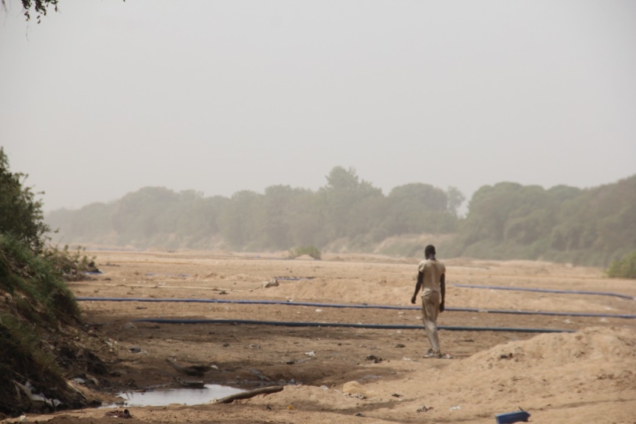Climate change is making outbreaks of disease more common and more dangerous, says the Pandemic Action Network, a platform ensuring that the world is prepared to respond to outbreaks and prevent the next pandemic.
Climate change impacts health both directly and indirectly, and is strongly mediated by environmental, social and public health determinants. Roughly, 60% of new pathogens come from animals, and roughly one-third of those can be directly attributed to changes in human land use.
According to the WHO, climate change is expected to cause approximately 250,000 additional deaths per year between 2030 and 2050, and the direct damage costs to health is estimated to be between US$2-4 billion per year by 2030.
“As the impacts of climate change grow, so do pandemic threats such as rising temperatures and deforestation directly linked to increasing risk of zoonotic spillover, infectious diseases, epidemic and pandemic threats,” said Aggrey Aluso, Director, Africa Region, Pandemic Action Network.
He was speaking at the first Africa Editors Climate Forum convened by the Kenya Editors Guild and Powershift Africa, under the coordination of AfricaonAir.
Aggrey observed that climate change is undermining every dimension of global health monitored, increasing the fragility of the global systems that health depends on, and increasing the vulnerability of populations to the coexisting geopolitical, energy, and cost-of-living crisis.
“Insufficient climate change adaptation efforts have left health systems vulnerable to climate change-related health hazards,”he said.
“Responding to the existing health impacts of climate change and minimizing future health threats demands urgent attention by the global community to advance rapid and large-scale action across health and other sectors.”
Without action, climate change could push more than 100 million people into extreme poverty by 2030.
Effective solutions to address climate change, and its impacts on health, remains slow and does not meet the scale of the challenge.
The human, economic, and social costs of inaction on both climate change and pandemics are enormous, far exceeding the estimated costs of preparation and prevention of pandemics or climate mitigation and adaptation, noted Aggrey.
The media, the scientific community, corporations, and country leaders are increasingly engaging in health and climate change, and new analysis shows that 86% of updated or new Nationally Determined Contributions now reference health.
Latest Stories
-
NSMQ star Jochebed Adwoa Sutherland sweeps 12 awards at UG Vice-Chancellor’s Ceremony
26 mins -
Ghana’s Education Quality ranked 125 out of 183 countries in latest Global Youth Development Index
51 mins -
Emma Stone wants people to use her real first name
55 mins -
FIFA Club World Cup 2025: Sundowns, Esperance join Al Ahly and Wydad as CAF representatives
5 hours -
CAFCL: Al Ahly set up historic final with ES Tunis
5 hours -
We didn’t sneak out 10 BVDs; they were auctioned as obsolete equipment – EC
9 hours -
King Charles to resume public duties after progress in cancer treatment
9 hours -
Arda Guler scores on first start in La Liga as Madrid beat Real Sociedad
10 hours -
Fatawu Issahaku’s Leicester City secures Premier League promotion after Leeds defeat
10 hours -
Anticipation builds as Junior Speller hosts nationwide auditions
10 hours -
Etse Sikanku: The driver’s mate conundrum
11 hours -
IMF Deputy Chief worried large chunk of Eurobonds is used to service debt
11 hours -
Otumfuo Osei Tutu II celebrates 25 years of peaceful rule on golden stool
11 hours -
We have enough funds to pay accruing benefits; we’ve never missed pension payments since 1991 – SSNIT
12 hours -
Let’s embrace shared vision and propel National Banking College – First Deputy Governor
12 hours

